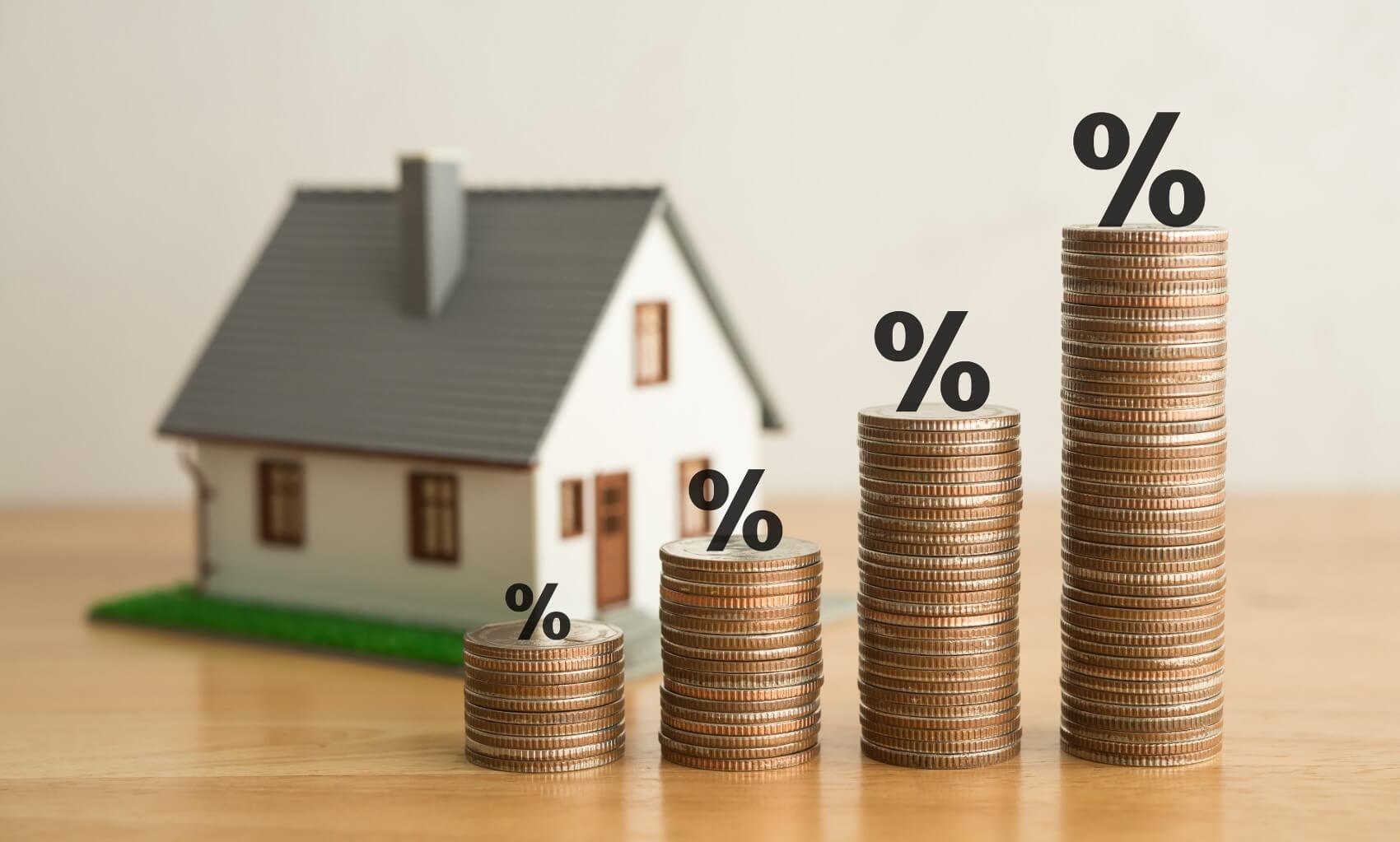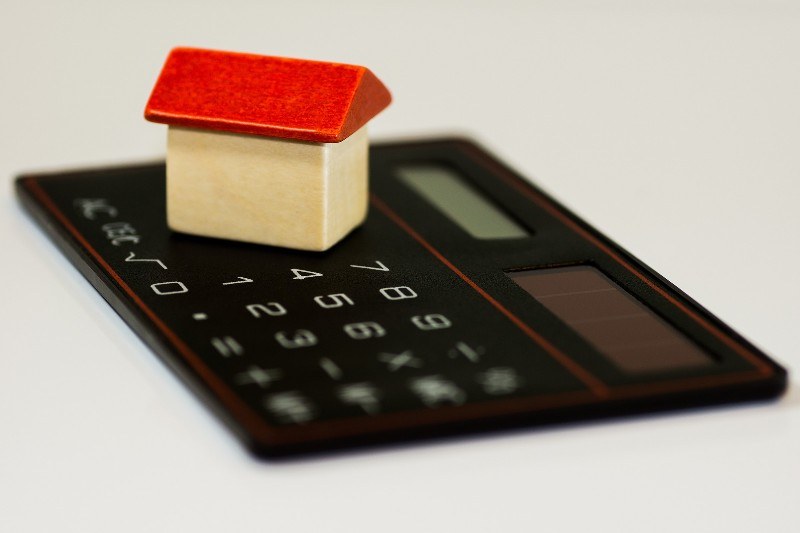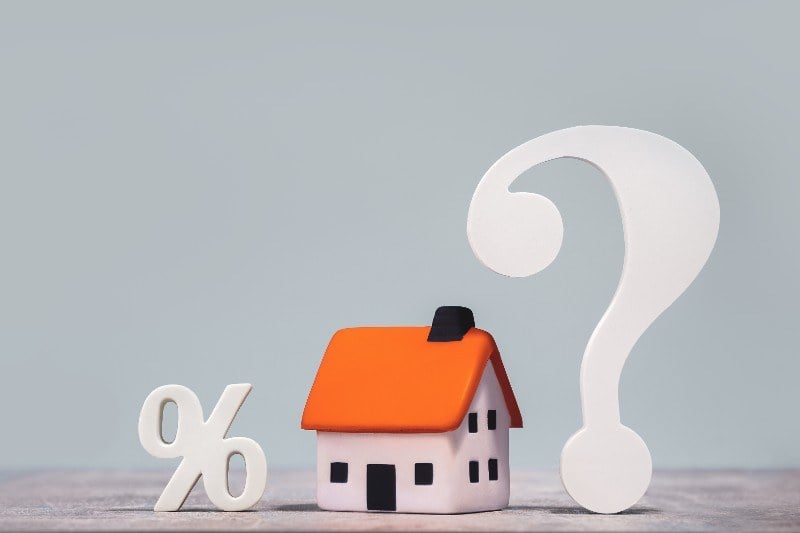Rate locking is a topic that’s come up a lot recently as the mortgage rate climbs higher and higher. Homebuyers first had to deal with rapidly rising prices - now the mortgage rates have followed! What does it mean to lock your mortgage rate, how can you do it, and when should you do it? Here’s what you need to know.
What Does it Mean to Lock in a Mortgage Rate?
Dealing with a fluctuating mortgage rate can be difficult when you’re buying a home - you could end up paying $100 more every single month for no other reason than the mortgage rate inched upward. For this reason, lenders allow borrowers to lock in rates, which means they will guarantee a set mortgage rate for an agreed-to period of time (usually 30 or 60 days).
Sometimes lenders charge a fee or a slightly higher rate for this - usually it’ll be already included in your mortgage rate itself, rather than appearing as a separate line charge.
Locking in a rate allows you to more accurately predict your future payments. Although we hear about how rates have been rising, in truth they fluctuate on a weekly, and even daily basis. To get an idea of how much your rate can fluctuate if you don’t lock it in, go to Mortgage News Daily. As of this writing (4/8), the site shows that the 30 yr. fixed mortgage rate fell by +.11% over the course of 24 hours, but over the last week, it rose .19%.
As we’ve detailed in Is the Housing Market Slowing Down? What Rising Interest Rates Mean, a 1% increase in rates means about a 12% decrease in buying power for would-be homebuyers - basically, for the same amount of money you now qualify for a home worth thousands of dollars less. So if rates seem to be on an upward trajectory and your mortgage advisor tells you to lock in your rate, you probably should.
Get pre-approved with Houwzer mortgage now.
When Do You Lock in a Mortgage Rate?
Most homebuyers lock in an interest rate when they are serious about buying a home and have submitted for their initial loan approval. It's possible to lock your mortgage rate up to 5 days before closing.
"If the interest rate is locked, it generally indicates the home buyer is pre-qualified/pre-approved and under agreement on a specific property," says mortgage advisor Julian Minatel.
What About New Construction?
If you're building your home, the process from start to finish is a lot longer than purchasing an existing home. If you buy a home before it's built, on average it'll be about eight months until you move in - and rates can vary widely over that length of time. One thing to keep in mind: while the home is being built, you'll be paying off a construction loan. You'll only receive a traditional home loan once the finished house has been inspected.
"The norm we see is a 60-day interest rate lock on new construction. However, many lenders may have differing timelines on how long they can lock an interest rate for on new construction," says Minatel.
Generally speaking, lenders are willing to offer longer lock periods specifically for new construction.
Is it Worth it to Lock My Mortgage Rate?
All signs point to mortgage rates continuing to rise throughout the rest of 2022. On April 5, mortgage rates hit their highest point in a decade, topping 5% - and by the time you read this, they may have climbed higher. Interest rates have risen over a full percentage point over the past year. Both inflation and forthcoming interest rate hikes from the Federal Reserve have been driving the rise and it's not clear whether, or when, rates will stabilize.
"Interest rates fluctuate on a daily basis. However, the general trend is that interest rates are rising," explains Minatel. "So if the home buyer is ready, it may make sense to lock the interest rate as long as the home buyer is happy with their estimated monthly mortgage payment."
So yes, it’s worth it to lock in your mortgage rate today because the likelihood of rates going continually up, rather than down, is high. However, this should always be a conversation with your mortgage advisor, who knows your financial situation best.
Of course, things can change. If mortgage rates consistently trend down, it might make less sense to lock your mortgage rate - since you're likely to access a better rate the longer you wait.
Can You Walk Away From a Mortgage Rate Lock?
So what happens if the mortgage rate goes down after you’ve locked it in at a higher rate? Does locking a mortgage rate commit you to a lender?
It really depends on the wording of the agreement you have with your lender, but for the most part, you can exit a mortgage rate lock, and it doesn't commit you to that lender.
However, you need to weigh the money you would save against costs you've already paid - is taking advantage of a .01 lower rate worth losing the money you've already paid to get pre-approved with this lender - and the effort of providing all your documentation? And if you're trying to buy a home, will there be enough time to get pre-approved with a different lender - essentially going through the entire process all over again?
Keep in mind, some agreements have a one-time “float down” option that allows buyers to take advantage of lower rates, while still keeping a ceiling on the maximum rate amount (this is more commonly offered for new construction loans).
Essentially, locking your mortgage rate means that you will not be able to take advantage of a lower rate unless you're willing to jump through quite a few hoops.
"There is generally no penalty for walking away from a lender that has already locked the loan. However, reading the loan disclosures pertaining to the transaction before committing to a lender, is prudent," says Minatel.
How Long Can You Lock a Rate For?
"The biggest misunderstanding I see is that the interest rate lock is infinite and that we are able to re-lock the loan easily if the interest rates decrease," notes Minatel.
Homebuyers noticing how quickly rates have risen this year are sensibly asking, how long can I lock my rate for? Especially because in this competitive market it can take some buyers months - if not a year - to successfully submit an offer on a home and close. While 30 or 60 days is typical, it is possible to lock your rate for an even longer period of time. Not all lenders will offer a longer locked rate period, though, and the price of doing so tends to go up - so in the end, it might not be worth it.
What happens if the lock expires while you're in the process of purchasing a home?
"If the interest lock expires, there may be a fee assessed to keep the lock active throughout the transaction," explains Minatel. Generally, the lender will work with you to find a way to extend the locked rate if you're in the process of closing.
Is There an Ideal Day of the Week (or time of the month) for Locking Rates?
You might assume that mortgage rates are like airlines, and a certain time of month or week can result in better rates.
However: "There is no best time to lock an interest rate. They largely depend on monetary policy and macroeconomic trends/variables; Good or bad," notes Minatel.
If rates are going consistently up each week, you're probably better off locking a rate now, regardless of which day of the week it is.
So: Should I Lock My Mortgage Rate Today?
Would-be homebuyers today are dealing with a number of exigent circumstances. To summarize, here are the questions you should be asking yourself to determine if you should lock your mortgage rate:
- Am I pre-approved and do I have a home I'm committed to buying?
- Are mortgage rates generally rising?
- Has my mortgage advisor given me the go-ahead?
- Do I feel comfortable with how this rate works with my budget?
Have more Qs? Discuss this topic further with a Houwzer mortgage advisor.
For Further Reading



